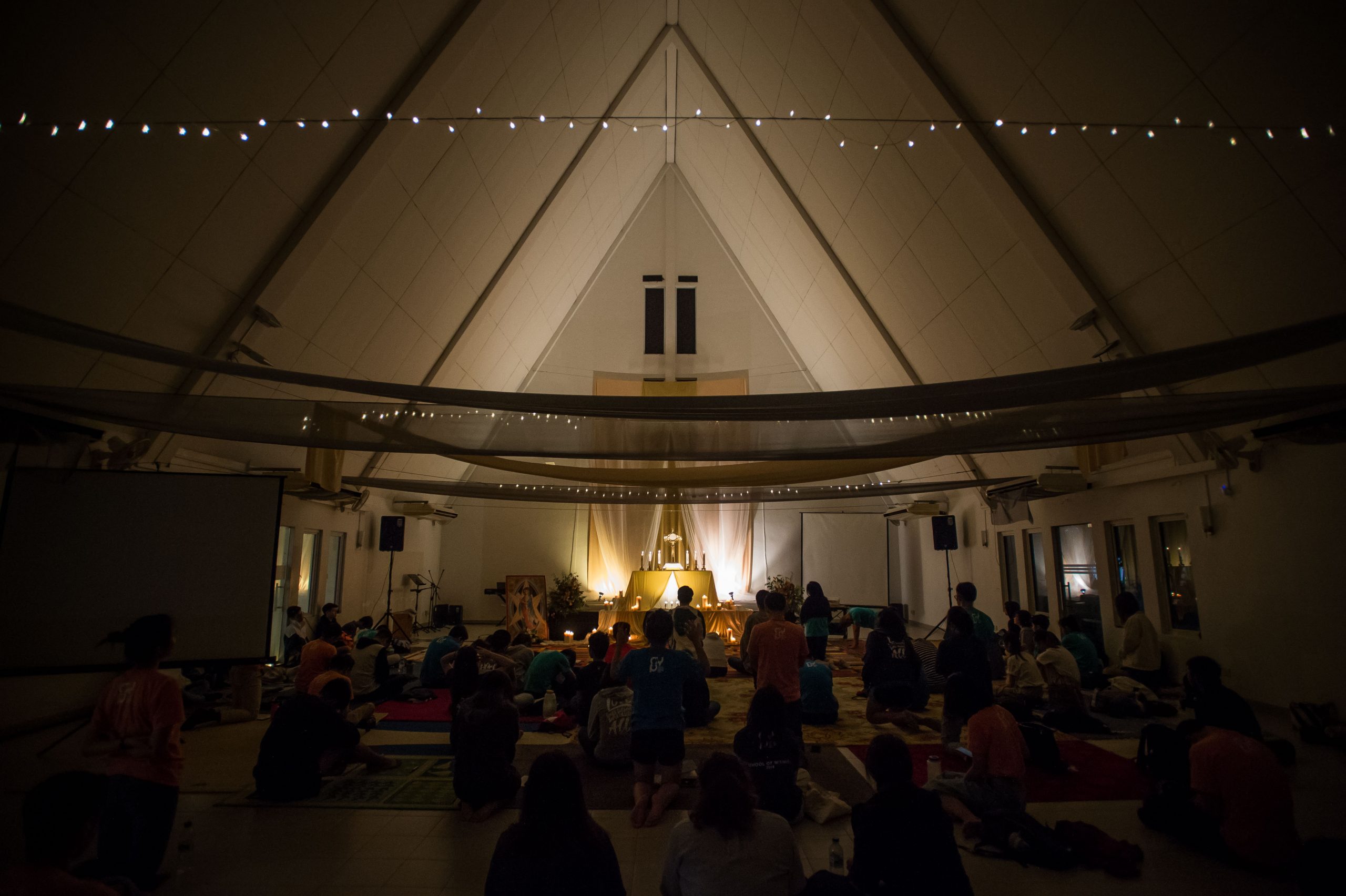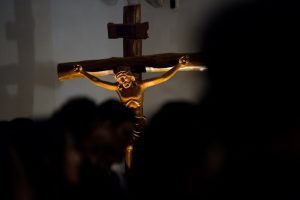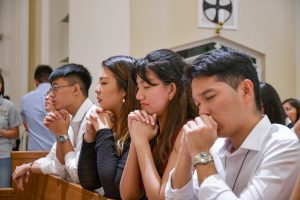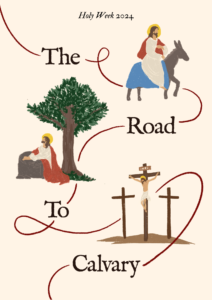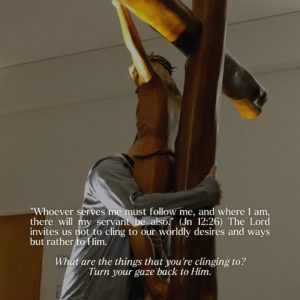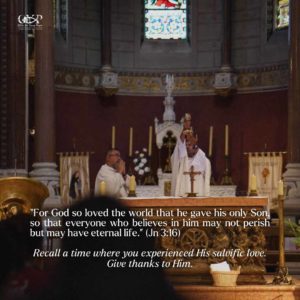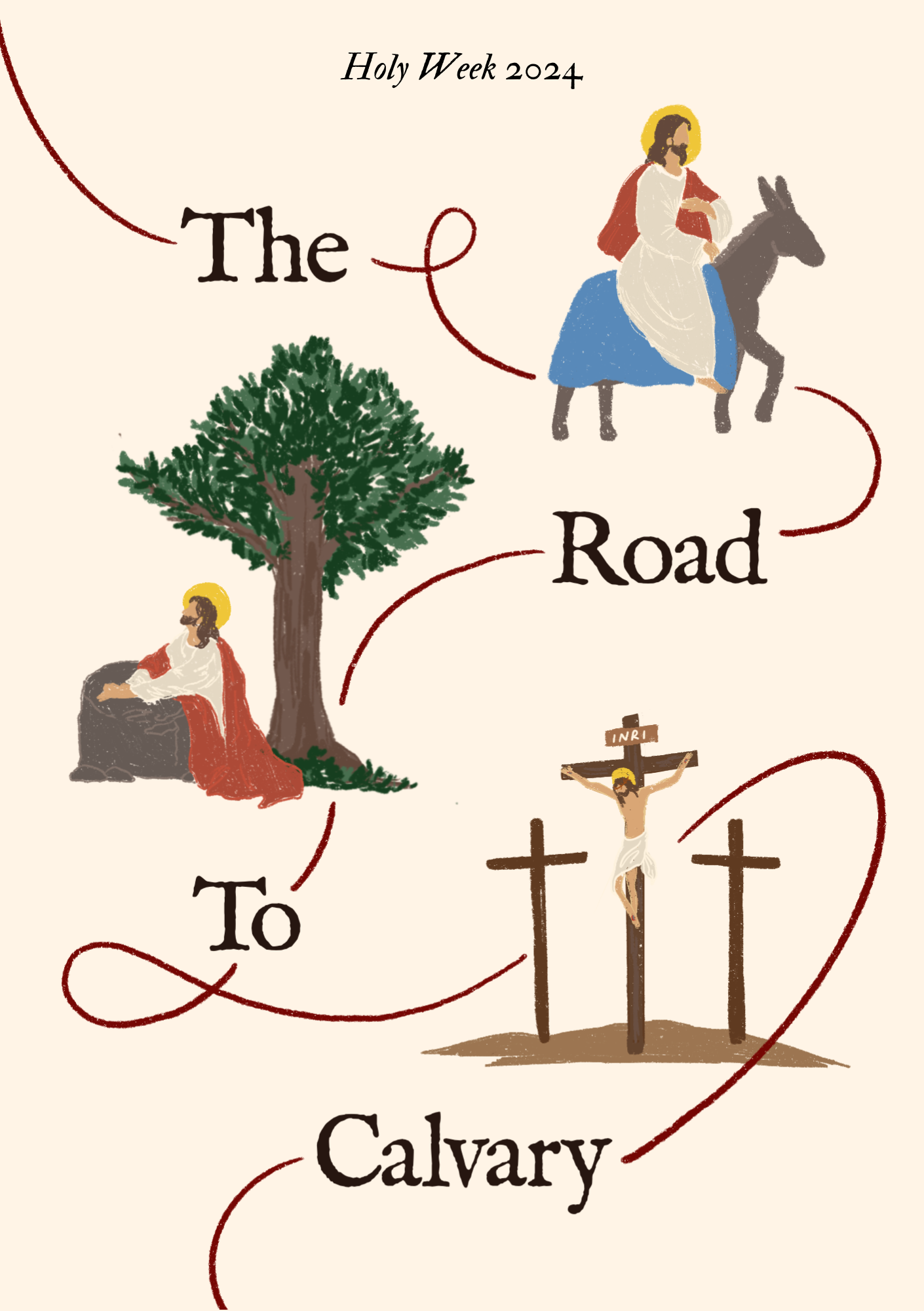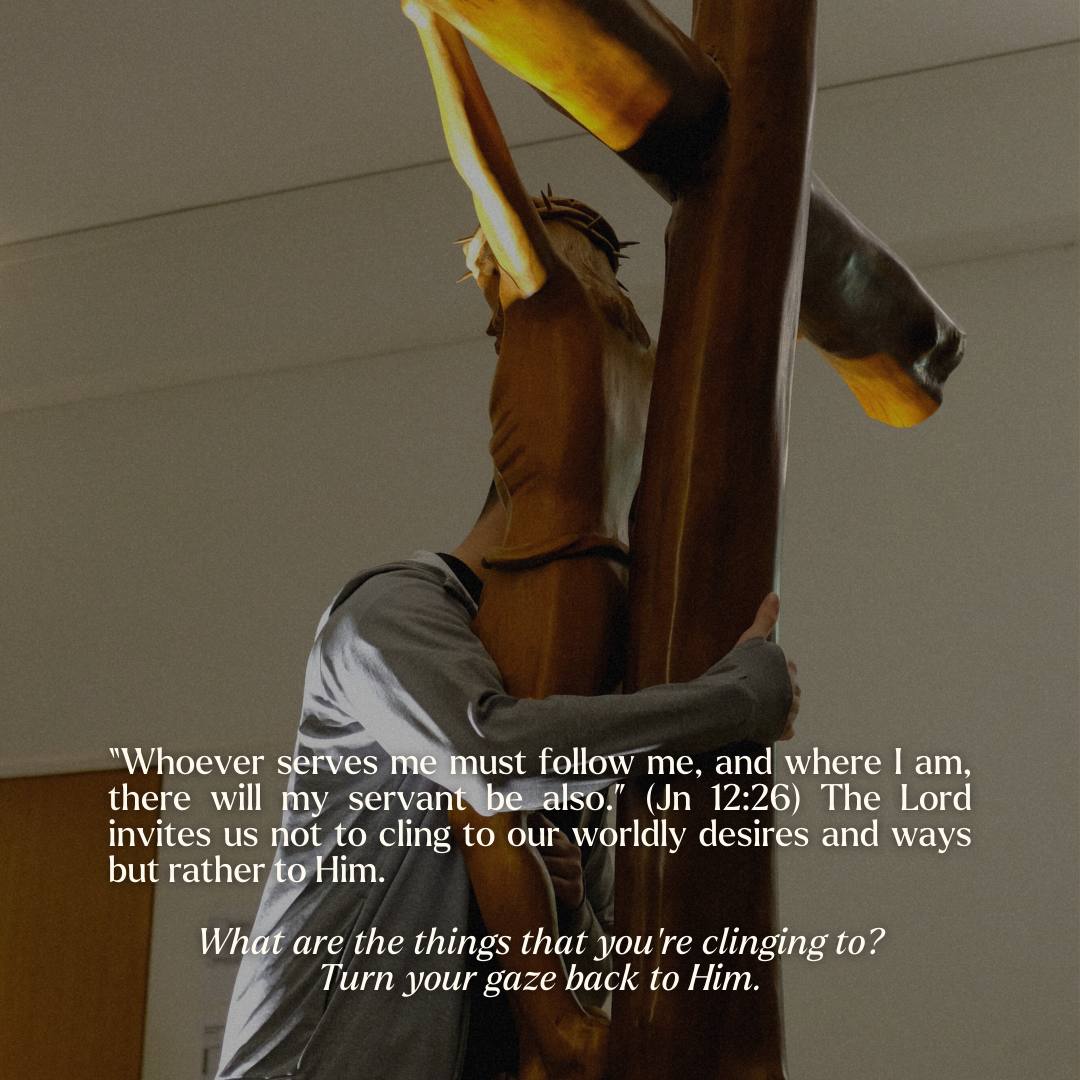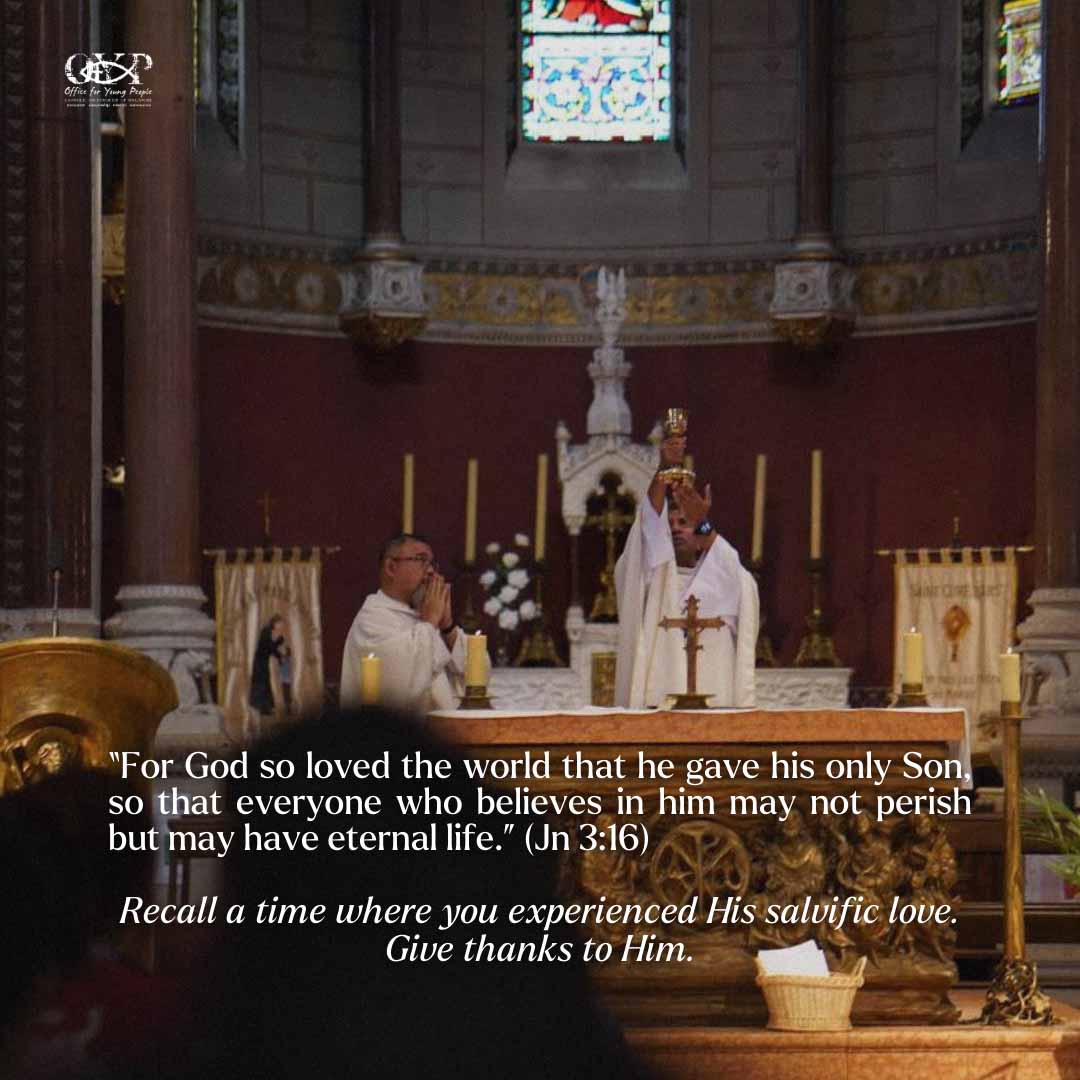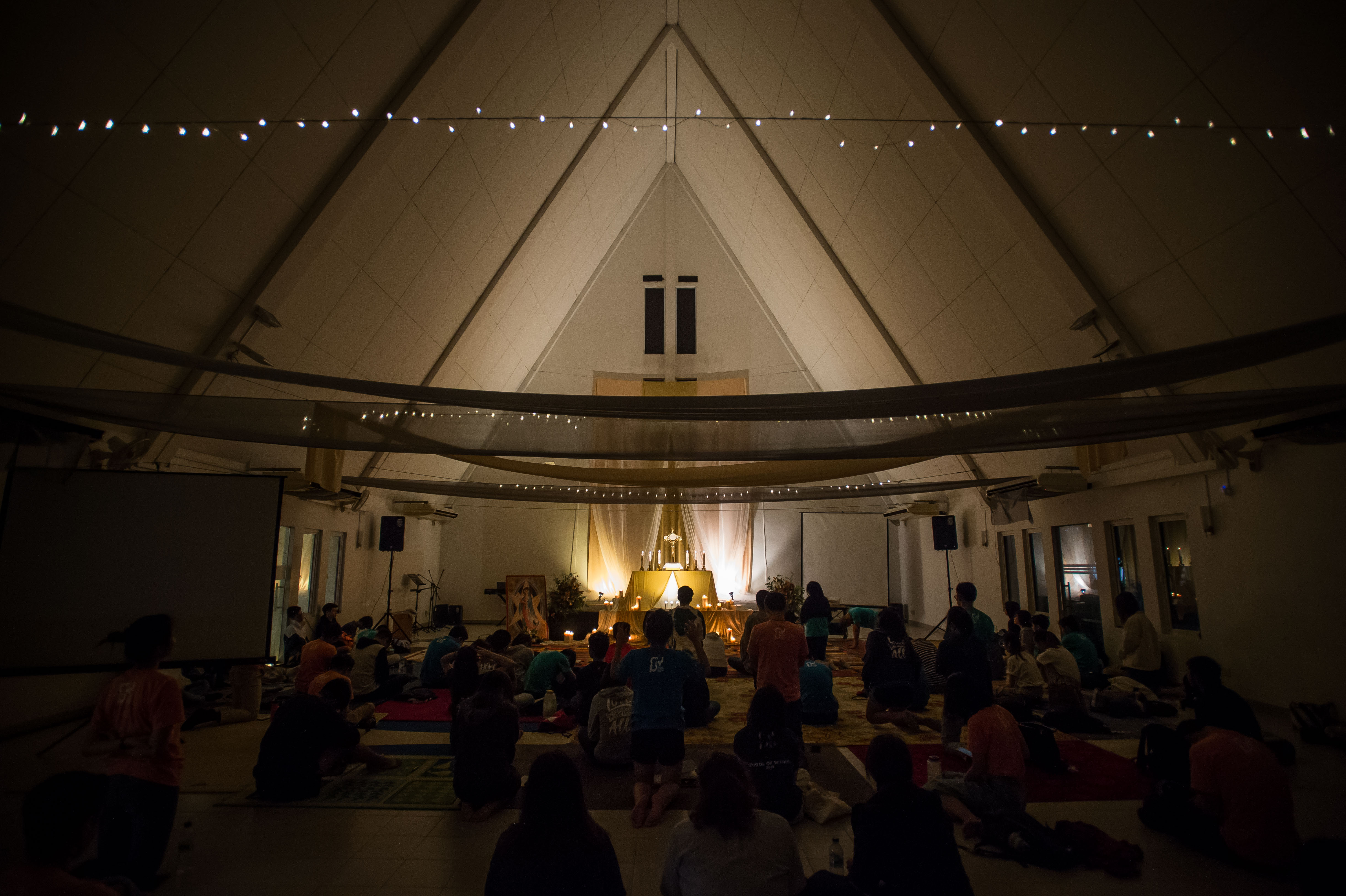
by Micaela Arriola
No one can escape the experience of suffering. When we first learn composition writing, our teachers introduce a story arc – Introduction, Rising Action, Climax, Falling Action, Resolution -, and in every story, the struggle (Rising Action) is essential. We learn that it is absolutely necessary for making a story good, so we can get a good grade. In a similar way, every inspirational video or movie involves the protagonist overcoming some trial in their life, and this is so alluring and fascinating to us because we ourselves experience it. Undoubtedly, we all struggle. But why?
If God is all good and all-loving, why did He allow so much suffering? Well, God didn’t want this. To understand suffering, we have to understand the reality of sin. Disorder was first introduced through Adam and Eve when they committed Man’s first sin – letting trust in the Creator die, abusing their freedom, and disobeying God’s commands (CCC397). This then begs the question of why God allowed them the opportunity to commit an error in the first place. The answer is Love. God created Man out of love and for love. We can all agree that it isn’t love if you have to force someone to ‘love’ you. Freedom is necessary for love, and sin abuses this freedom which God gave us so that we are capable of loving Him and loving one another (CCC387). As a result of this sin, human nature was weakened and subjected to much suffering (CCC405). God didn’t plan for us to suffer, He simply wanted to love us.
Know the nature of God
With the understanding of suffering, we may not ask “why?” anymore, but when faced with a struggle, we ask, “why me?”. Often when we think of suffering, we think of undeserved suffering, because the suffering of those who are ‘bad’ comes deservingly in our eyes and we rarely question that. The age-old question of “why do bad things happen to good people?” has been the basis of not believing in God for many. I, personally, have wrestled with this time and time again but I’ve learned that to delve into whether God is fair or not is pointless because simply He isn’t. God is not fair. At least not in the way you and I define ‘fair’. Our God is a Father who knows all His children personally (Psalm 139:1). He is not fair because He is just. He doesn’t give each of us the same equal lot, because He gives each of us exactly what we need to fulfill each of our own unique callings. Fairness is a flawed way to measure a God who is perfect and divine, beyond our human understanding. Like a gardener who knows which plants need more or less sunlight, God nurtures us and desires good for us always (Jeremiah 32:40).
Trust in Him
However, it is in the midst of our struggles that we may find it the hardest to trust in His goodness. Although extremely archaic, suffering still feels like some kind of punishment, and even with the knowledge that God prunes us to better us (John 15:2), we still question the necessity of this suffering. What possible good could come out of this? In Genesis 22, God told Abraham to offer up his son, Isaac, as a burnt offering. God had promised Abraham that he would have descendants as many as the stars (Genesis 15:5) and that it would be established through Isaac (Genesis 17:19,21). Nowhere in the passage does it show Abraham questioning “Why?”, “Why me?”, “What possible good could come out of this?” or even, “then what about Your promise to me?” He simply obeyed God. I don’t know why or how Abraham did it, but perhaps it’s because Abraham’s faith wasn’t built upon his circumstances but on the nature of his God. He trusted in God’s plan and believed that His God was one that kept His promises (Numbers 23:19), even though he could not see how God was going to bring them to fruition. If you know who is leading you, you don’t need to know all the ‘why’s and the ‘how’s because you trust that it will be good, and so, you are able to obey.
Look to the Cross
Another trap we may fall into when we’re struggling is thinking that God could never relate to our problems. This may be the simplest point of discussion in this piece: look to the cross. Jesus suffered profoundly and completely undeservedly. He conquered sin by his obedience unto death, and he overcame death by his Resurrection (Salvifici Doloris iv 14). He didn’t solve the problem of suffering by taking it away. Jesus embraced it and took all of mankind’s sin upon Himself. The sinless man became sin itself to redeem us from the death Adam introduced into the world. If there was anyone who understood suffering, just or unjust, it would be Jesus. But not only did He experience it, but Jesus also made suffering redemptive and gave it meaning (Salvifici Doloris v 19). But why did God not prevent the first man from sinning? St. Leo the Great responds, “Christ’s inexpressible grace gave us blessings better than those the demon’s envy had taken away.” And St. Thomas Aquinas wrote,
“There is nothing to prevent human nature’s being raised up to something greater, even after sin; God permits evil in order to draw forth some greater good. Thus St. Paul says, ‘Where sin increased, grace abounded all the more’; and the Exsultet sings, ‘O happy fault, . . . which gained for us so great a Redeemer!'” – CCC412
Share in Christ’s suffering
St. Paul makes the most puzzling statement in his letter to the Colossians:
Now I rejoice in my sufferings for your sake, and in my flesh I am filling up what is lacking in the afflictions of Christ on behalf of his body, which is the church (Colossians 1:24)
It seems not only absurd, but ludicrous as well, to think that we can make up for anything Christ’s suffering lacks (if it could even possibly lack anything – because no one can have greater love than to lay down his life for his friends (John 15:13) especially in such a brutal way). ‘Lacking’ here doesn’t imply that Christ’s redeeming death was incomplete. It is a call for us to unite our sufferings with the sufferings of Christ. This is because not everyone has accepted the offer of eternal life. We are necessary witnesses to the Good News that Christ has saved us from the eternal suffering of death. When Jesus rose from the dead, he had a complete makeover – no one could recognise him -, but he left his scars. He left the wounds to boast that He conquered death and sin. By His wounds we have been healed. By our wounds, may others see how Christ has healed us.
This is not our home
I’m not saying that we won’t struggle or that we’re not supposed to feel like we’re suffering, but when we do, we can offer it up and allow it to reveal God’s nature and His glory (1 Thessalonians 4:13). Know that in the struggle, He is close (Psalm 34:18). We may not know why we must experience it or how it can bear fruit, but what we do know is that He is good. From the fall of Man which brought suffering into this world, Jesus, the new Adam, has redeemed us. And each one of us has a testimony because of the tests in our lives. We may experience hardship, persecution and death, but like Jesus, there will also be resurrection and redemption in our lives. May we recognise God’s healing hand and be the hope to those around us struggling too.
“Since what we aim for is not visible but invisible. Visible things are transitory, but invisible things eternal.” – 2 Corinthians 4:18
Truly, our lives here are only temporary, but the temporary hardships we face earn us an incomparable reward in Heaven. But while here on earth, and facing the inevitable struggle, may we emulate the attitude of St. Paul as he proclaims.
“My grace is sufficient for you, for power is made perfect in weakness.” I will rather boast most gladly of my weaknesses, in order that the power of Christ may dwell with me. Therefore, I am content with weaknesses, insults, hardships, persecutions, and constraints, for the sake of Christ; for when I am weak, then I am strong.” – 2 Corinthians 12:9-10

